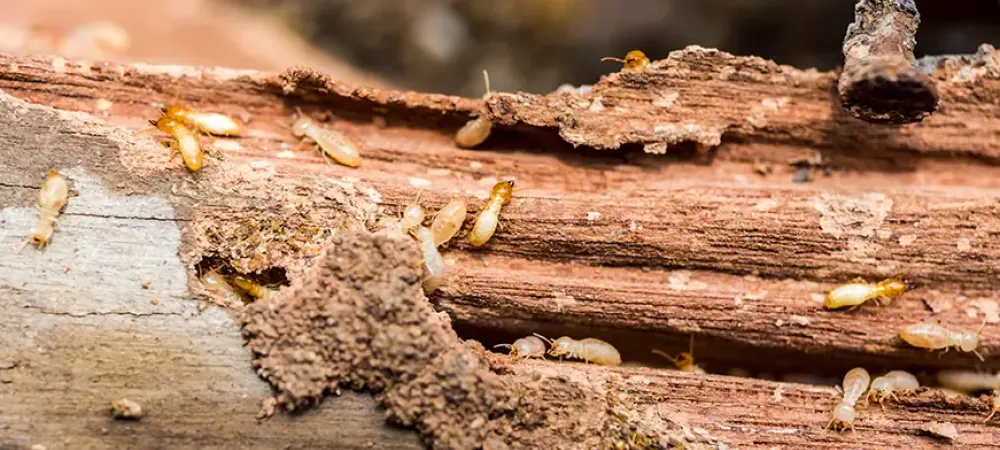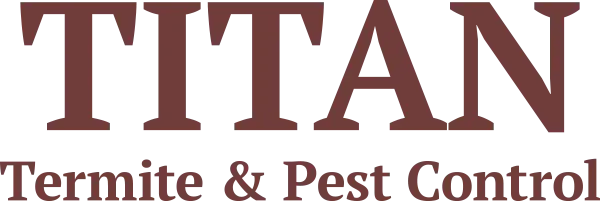Are Termites Still Active in South Carolina During the Fall and Winter?

If you live in South Carolina, you’re in a year-round termite zone. Unlike states with harsh winters that force termites into temporary dormancy, the mild, humid climate of the Palmetto State means these destructive pests remain active 12 months a year. Fall and winter are not "safe" seasons.
This is especially true for the two most common and destructive species found here:
- Eastern Subterranean Termites: The most widespread species, constantly seeking cellulose (wood) to feed their colony.
- Formosan Subterranean Termites: Known as the "super termite," increasingly common along the SC coast and capable of causing significant damage at a faster rate than native species. According to experts, a Formosan colony can cause extensive damage to a home in less than two years when conditions are right.
Are Termites Active During the Winter?
Yes — termites are active during the winter. You can’t let your guard down in the cooler months because of three key factors unique to South Carolina’s environment and homes:
- Warm, Stable Soil Temperatures: Termites thrive when soil temperatures remain above 50°F. In cities like Charleston, Columbia, and Greenville, the soil rarely drops below this critical threshold for long, allowing colonies to continue their normal routines. The Clemson Cooperative Extension confirms that SC’s humid subtropical climate supports year-round subterranean termite activity.
- Your Heated Home is an Oasis: Even if the ground briefly cools, your home acts as a giant, centrally-heated food source. It offers:
- Warm Wood: Structural beams and wood framing.
- Moisture: From leaky pipes, poor drainage, and crawlspaces.
- Hidden Entry Points: All winter long, they feed inside your walls, protected from the cold.
- Silent Growth Season: During fall and winter, you see fewer swarms, which means fewer obvious warning signs for the homeowner. However, feeding, colony expansion, and tunnel construction continue unabated. This is often when the most destructive, hidden damage occurs unnoticed.
What do Termites Do During the Winter?
During the winter, termites don’t slow down—they simply stay hidden. Even though you won’t see the obvious swarms that occur in warmer months, worker termites remain fully active beneath the surface, continuing to damage your home. Throughout winter, termites are busy:
- Feeding on structural wood like sill plates and support beams.
- Expanding mud tubes through foundation cracks and voids.
- Reproducing and increasing the size of the colony.
- Seeking moisture-rich areas, often caused by seasonal moisture buildup or plumbing leaks.
Homeowners frequently discover damage in early spring, damage that was actually inflicted over the silent, cooler months.
What Areas of a Home Are Most at Risk for Termites?
Titan Termite & Pest Control technicians routinely find winter termite activity in:
- Crawlspaces and Basements: High moisture and exposed wood are a perfect combination.
- Sill Plates and Support Beams: Primary structural targets right above the foundation.
- Areas with Plumbing Leaks: Any water source attracts them.
- Door Frames and Window Trim: Wood that may be near the soil line or have minor leaks.
- Mulch Beds: Mulch beds that touch the home's foundation
How to Protect Your Home: A Year-Round Termite Strategy
Termite protection in SC can never be seasonal—it must be a year-round strategy. For residents needing reliable home protection, Titan Termite Control recommends these essential steps:
1. Schedule a Professional Termite Inspection (Fall/Winter is Ideal)
An annual termite inspection is your best defense. Since swarms are rare in winter, a licensed Titan Termite Control technician will perform a detailed, forensic search, looking for subtle signs like:
- Early mud tubes and hidden entry points.
- Seasonal moisture buildup in the crawlspace.
- Wood rot that is highly attractive to termites.
2. Maintain a Professional Termite Protection Plan
The most effective way to protect your home is with a continuous monitoring and treatment plan. Termite bonds and monitoring systems, are the proven methods, with the U.S. EPA providing guidance on the importance of professional termiticide treatments and comprehensive structural protection.
3. Reduce Moisture Around the Home
Moisture is a termite magnet. Reducing it is a critical, proactive step:
- Fix Leaks: Immediately repair any dripping faucets, pipes, or roof leaks.
- Regrade Soil: Ensure soil slopes away from your foundation to prevent pooling water.
- Improve Ventilation: Make sure crawlspace vents are open and working properly.
- Store Firewood Away: Keep all firewood at least 20 feet from your home’s structure.
4. Create a Mulch-Free Zone
Mulch retains moisture and provides a protective, high-cellulose food source right against your foundation. Keep all landscaping materials, including mulch, at least 12 inches away from your siding and foundation.
Trust Titan Termite Control in South Carolina
If you live in South Carolina, the threat of termites is constant. Fall and winter are not times to postpone your protection—they are the most critical times to maintain it before hidden damage takes hold.
Titan Termite & Pest Control protects thousands of homes across the region from these year-round threats. If you want peace of mind this winter, now is the time to act.
Protect your home before silent winter damage sets in.
→ Schedule your termite inspection with Titan Termite Control today.
